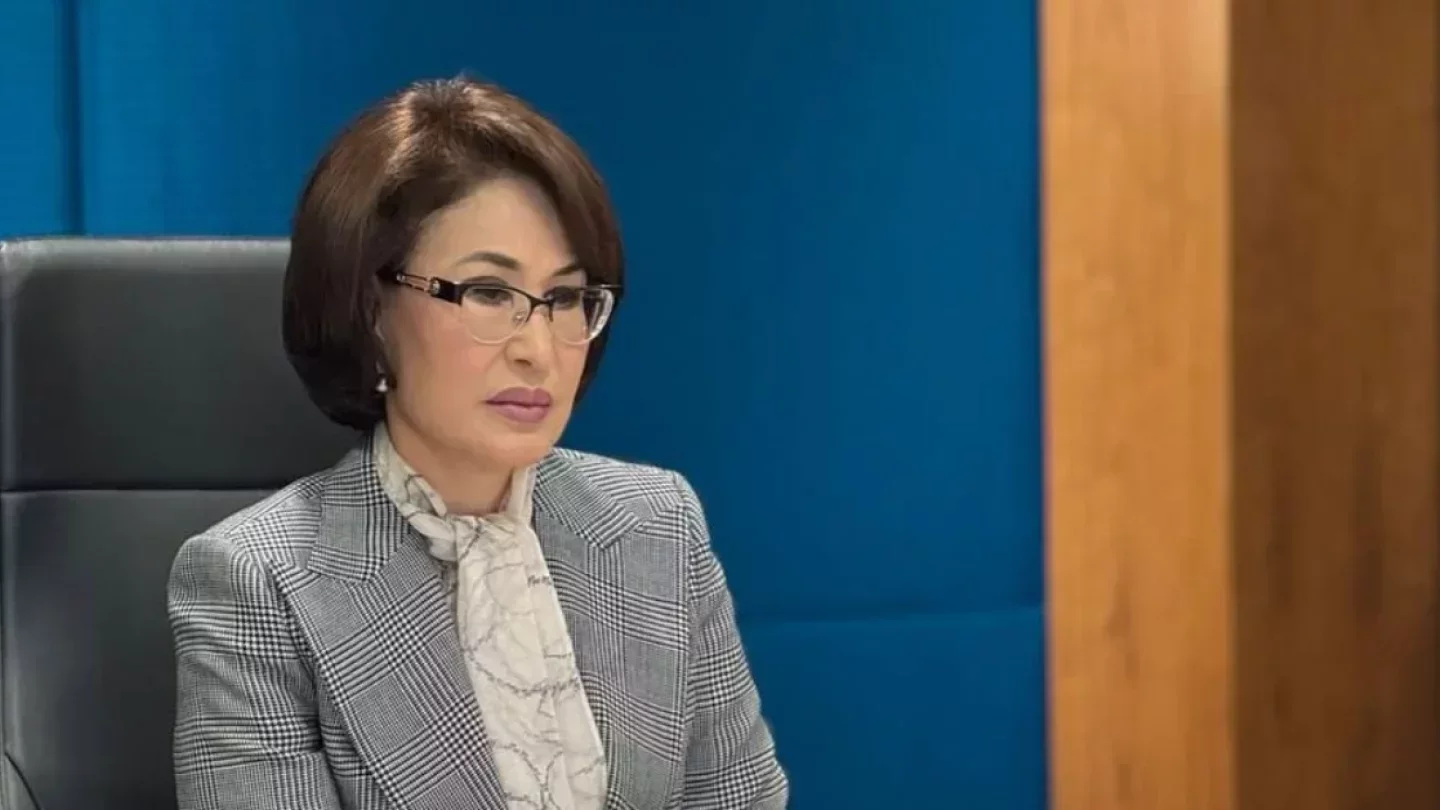Corruption Claims Against Health Ministry Push Vaccine Debate Into Legal Arena
 Photo: Instagram.com (@akmaralalnazarova)
Photo: Instagram.com (@akmaralalnazarova)
Kazakhstan’s Health Minister Akmaral Alnazarova has filed a pre-trial claim, stating that Facebook posts by activist Didar Smagulov are harming the country’s healthcare system, Orda.kz reports.
The claim concerns Smagulov’s public allegations of corruption in the procurement of whooping cough vaccines. Smagulov wrote in a post that the lawsuit could even give him grounds to demand documents that the Ministry of Health is allegedly withholding.
My position is based on official data and documents — every word, he stressed.
Smagulov says Sanofi entered the Kazakh market in 2013 with its acellular vaccine, despite WHO recommendations to use whole-cell vaccines rather than acellular ones.
He claims the previous vaccine was either not re-registered or deliberately left without registration, after which the entire country switched to a different vaccine — more expensive and, in his view, less effective.
In her response, Minister Alnazarova said the choice of the acellular vaccine was “well-considered and scientifically justified.” She noted that Sanofi’s product is used in more than 30 developed countries, including the United States, Canada, Japan, South Korea, and most of Europe.
In Kazakhstan, she said, 21 million doses have been administered to children under seven, and not a single serious adverse reaction has been recorded.
Smagulov countered with international data. In countries that use the acellular vaccine, whooping cough rates are now reaching record levels: 33,000 cases were registered in the United States in 2024, about 60,000 in the EU in 2023, more than 100,000 in France, and nearly 40,000 in Japan in the first half of 2025. He noted that vaccination rates in these countries remain very high.
If 30 out of 195 countries use the acellular vaccine, what are the other 165 doing?he asked the minister.
Smagulov also said acellular vaccines require extra booster doses for adolescents, pregnant women, and medical staff.
By his estimate, annual vaccination costs could reach 27–30 billion tenge.
The whole-cell vaccine required four doses — the new one requires eight. That means higher spending, he said.
He also reminded that in 2018, the US Securities and Exchange Commission accused Sanofi of bribing Kazakh officials. The company paid more than 25 million dollars to settle the case. Smagulov said he sent a formal request to the US Embassy asking who exactly received the payments.
In her response post, Alnazarova said Kazakhstan buys the vaccine at the lowest price among CIS and Eastern European countries. She also argued that Smagulov’s publications undermine public trust in healthcare. The Ministry issued him a pretrial claim demanding a retraction.
Smagulov refused, saying he intends to defend his position in court.
Corruption in the Ministry of Health — exposed internationally — is what truly undermines trust, he wrote.
Earlier, we reported that during a flight from Astana to Almaty, Alnazarova allegedly provided medical assistance to a woman suffering a hypertensive crisis.
Passengers said the minister measured her blood pressure and helped stabilize her condition before takeoff. The incident sparked debate online, where many users questioned whether the scene was spontaneous or staged.
Meanwhile, paramedics across several regions are publicly complaining about meager salaries and harsh working conditions. Over the past week alone, emergency medical workers in Taldykorgan, Shu, and Temirtau recorded video appeals to the president and the minister.
They say they are working to exhaustion, actually earning 180–200 thousand tenge, and often forced to find side jobs. Some ambulance stations operate in dilapidated buildings without electricity or heat.
In response to criticism, Alnazarova ordered an audit and promised to present a “ready solution.”
Original Author: Ruslan Loginov
Latest news
- Eyewitnesses Share Photos of Kazakh Citizens’ Evacuation
- Tokayev Orders Tighter Security for Kazakhstan’s Critical Infrastructure
- Semey Teen Convicted Over Telegram Chat Targeting Foreign Students
- Gender Equality Index 2025: Is Kazakhstan Leading in the Region?
- UNICEF Highlights Children’s Digital Rights in Draft Constitution of Kazakhstan
- Kazakhstani Journalists Returning From Ukraine Detained at Astana Airport
- Kazakhstan Prosecutor Opposes Deportation of 16-Year-Old Russian Teen
- Russian TV Channels Taken Off Air in Kazakhstan
- Mistaken Claim? Kazakhstan Denies $1B Contribution to the Board of Peace
- How many Kazakhstanis remain in the Middle East — MFA
- Kazhydromet Warns of High Flood Risk in Five Regions in 2026
- MP Calls for Prosecutor Review of Kazakhstanis’ Dubai Property
- Kazakhstan Moves to Legalize Private Detective Work
- Kazakhstan to Extend Gas Export Ban for Six More Months
- Majilis MP Calls to Soften Liability for Kazakhstanis Drawn into Foreign Wars for Pay
- The Delivery of 51 Stadler Passenger Coaches Has Been Delayed
- Kazakhstan Returns Nearly 1,000 Citizens From the Middle East
- Damaged Baikonur Launch Pad Facility Restored After 2025 Collapse
- A Rare Black Melanist Wolf Was Shot in Eastern Kazakhstan
- Kazakhstan Maintains Neutral Stance on Middle East Escalation

